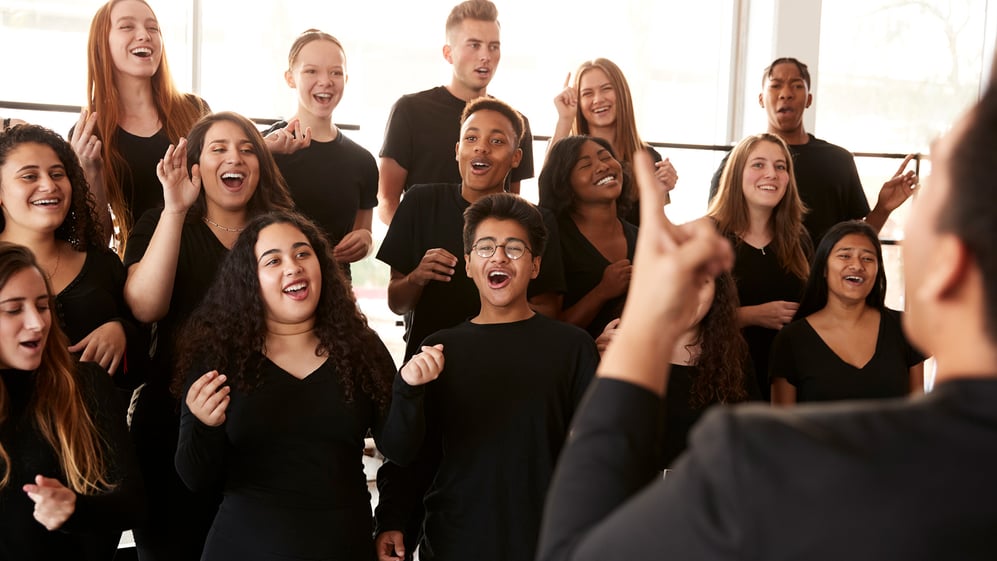There’s a meme I’ve seen more than once. It goes something like this:
Me: I just want to learn how to do my taxes.
School: Shut up and square dance.
It’s a sentiment I’ve heard many times: “Schools need to teach more practical skills.”
“How about we learn how to write a check and how to budget instead of learning to play recorders?”
“I don’t know how to open a bank account, but I do know how to do-si-do. That’s really helpful in the real world.”
I suspect that those who think this way have nothing against music and dancing in general. Instead, they probably think that students would be better served learning the basics of finance and practical skills instead of “impractical” subjects like music. After all, learning to square dance will not help you in the real world.
Real World Education
But what should we be learning in school? Indeed, what is the point of education? Is it meant to supply life skills, to teach students how to budget, write a check, do their taxes, fix a leaky faucet, repair a car engine, or the like? To be sure, these are all helpful and necessary things. Men and women often attend schools that specifically teach these skills.
But college-age or adult students attending a trade school or university to learn career specifics is a far cry from teaching the general public about everything that could be encompassed under education. When a third-grader wanders into a classroom, what exactly do they need to know? Think of all the knowledge in the world, then bring it down to the level an eight-year-old would understand, and try to pick out what should be taught in the 180 or so days of a school year. It’s an exhausting thought process, to say nothing of the actual task of curriculum development.
This question is continually asked by teachers, administrators, superintendents, government officials, and others: What should we teach?
Thankfully, as Christians, we have a definite direction in the overwhelming wilderness of modern education. Our end goal is heaven, and the only way to heaven is through Christ. Teaching Christ crucified is our primary objective. It’s why the little ones in my school start every day with theology. Everything else is secondary to that objective, and everything else points to that truth.
Clearly, looking to the Gospel as our primary objective does not make everything else about curriculum development magically fall into place. It gives us a primary goal but not an exact roadmap to get there in our educative system where children need to know so much. Even within theological education, how do we choose which Bible stories to teach? Which Bible verses should students know by heart? How much contextual history should they know? Do they need to learn biblical languages to study the Bible thoroughly? Which church writings outside the Bible should they study? In our Lutheran schools, should students stick to studying Lutheran writings, or should they explore those of other denominations? This is in addition to deciding what should be taught in math, history, science, literature, spelling and grammar, PE, art, and music.
This all brings me back to the meme. With so much to teach, why do schools waste time square dancing?
We could look at all the physical and mental benefits of square dancing. One develops a sense of rhythm and graceful movement. Students learn coordination and develop healthy skills by physically moving. Socially, students must work together to make the dance work correctly. They must learn to dance with those they may not particularly like and show respect to those they are dancing with. Square dancing helps develop musicality by teaching rhythm and a feel for music.
The Importance of Music Education
But, as I have written before, music (and dancing) education is about more than just the physical, mental, and social benefits we glean from it. In the end, it is about our souls. “How is square dancing relevant to our souls?” you might rightfully ask. Square dancing, and music and dancing in general, give us delight. These provide joy and promote a love of the good things in life. Understandably, not everyone agrees with me. Certainly, a majority of my middle school boys would not think dancing would bring them joy. That is why they must be taught. They must be taught what is good and what is not; that physical movement with our able bodies, that the art of stepping in sync with others, that respectful treatment of even those we do not like, and that the understanding of how music moves (and how it moves us) are all good things.
A good education will make a child intelligent. A solid foundation of mathematics will make taxes a breeze—maybe. An education in wisdom and prudence with a focus on Christ instead of material goods will make managing finances second nature.
Let us not overlook one of the greatest gifts God has given us—our families. A healthy, intact family consisting of a capable, nurturing mother and a strong, hard-working father, both of whom love their family above all else, will provide the skills necessary for a child to make his way in the world. After all, I learned how to write a check, open a bank account, do my taxes, and manage my money from my parents.
Obviously, this is not the norm for the sinful world. Many people have neither a good education nor a good family. But this is all the more reason they must learn how to square dance, for they need to know what is good. They need to be led to Christ through what is good and beautiful and delightful and true. They will still eventually learn how to do their taxes. They will figure out how to manage money through trial and error. They will eventually open a bank account and will learn how to fix their car and figure out home repairs.
And then…what? Without Christ, they will be skillful yet despondent. They may be rich but ignorant. They will be “tough and resourceful” yet mired in miserable materialism.
So teach Christ—teach Him through art and song and dance and literature and history and mathematics and science. Teach Him in hymns and chants and Psalms. Teach Him through square dances. Teach Him, for in Him is the beginning of wisdom. Only in Him is our education complete. Only in Him and not in all the rest of the knowledge and skills of the world will we find true and lasting joy.
To begin giving children a solid education in Christ, consider our newest Sunday School materials, Enduring Faith, for all grade levels.












